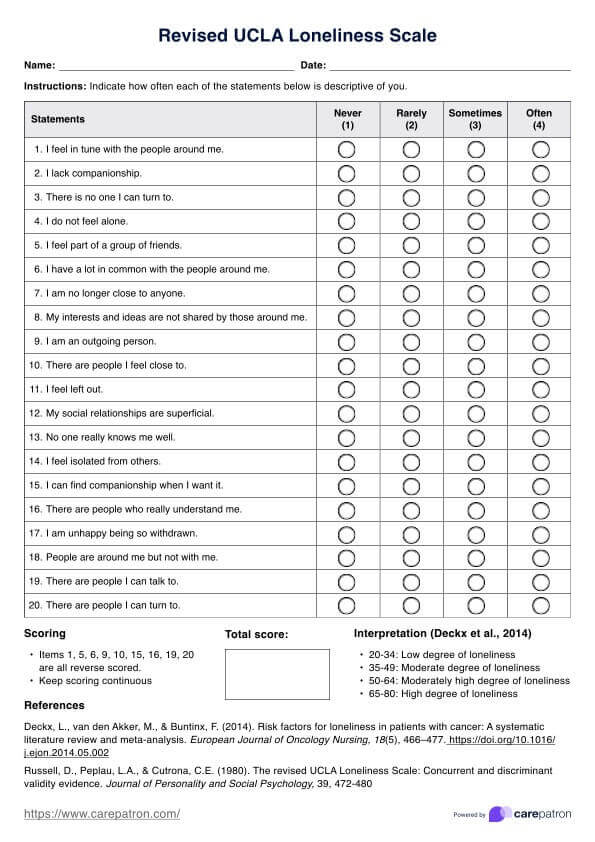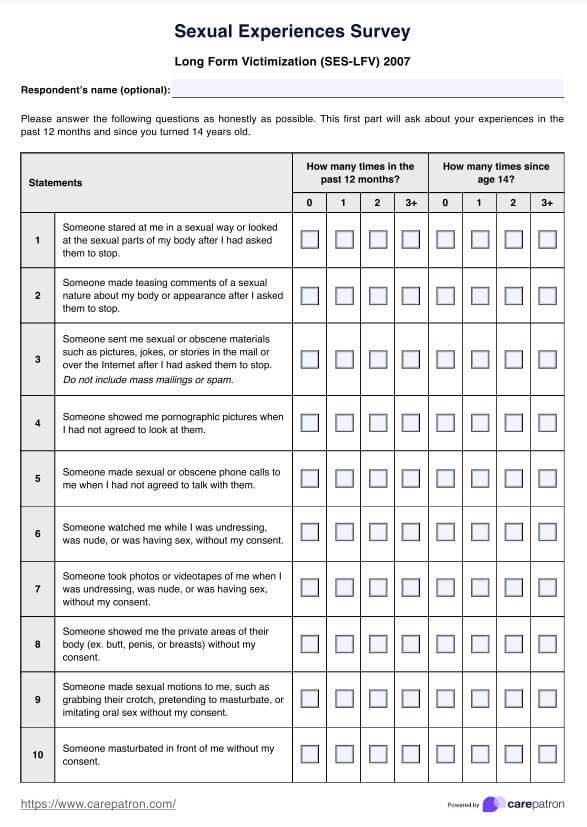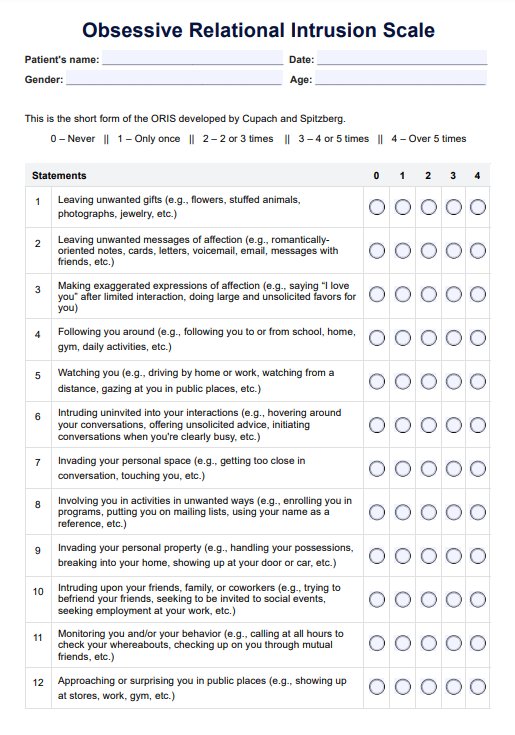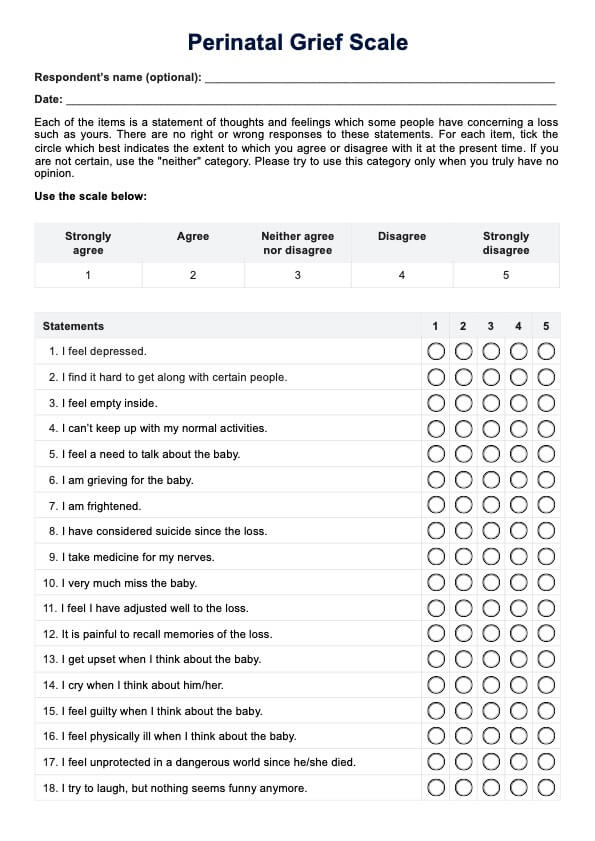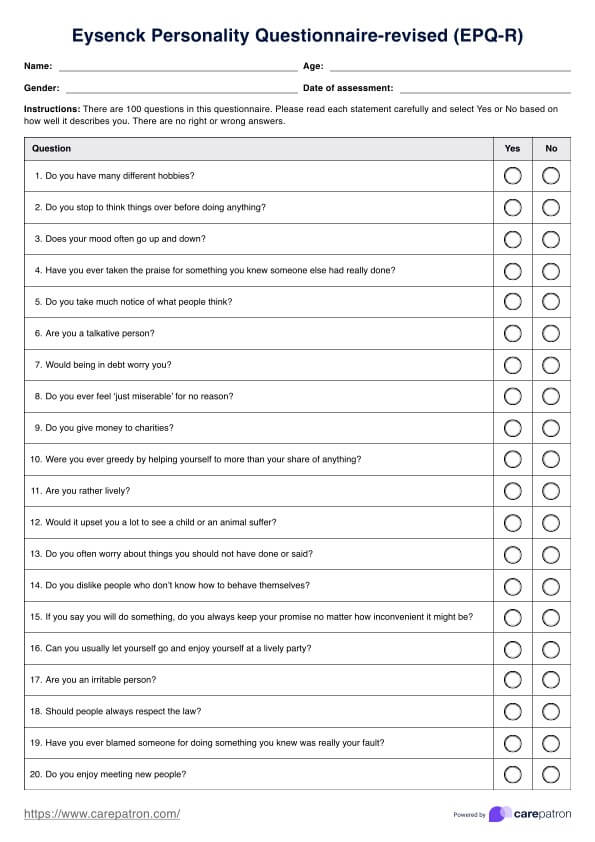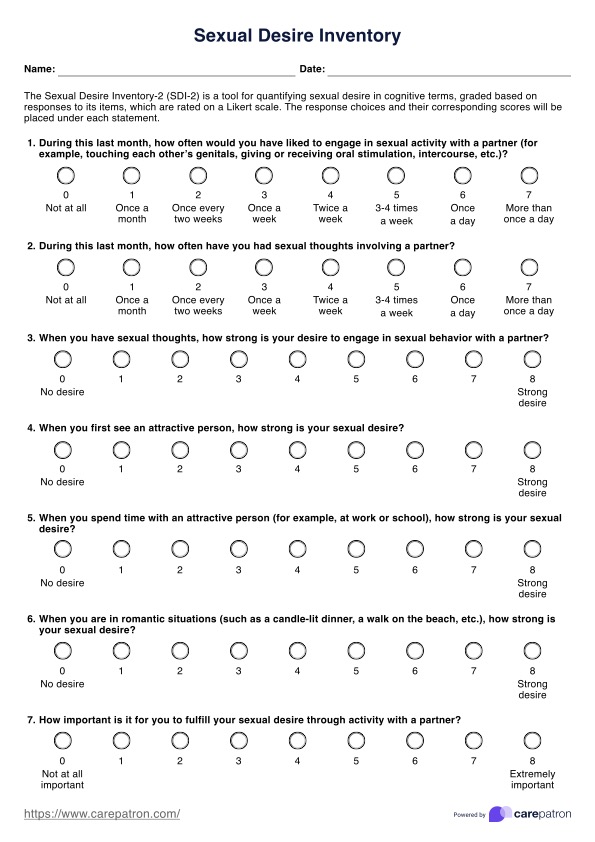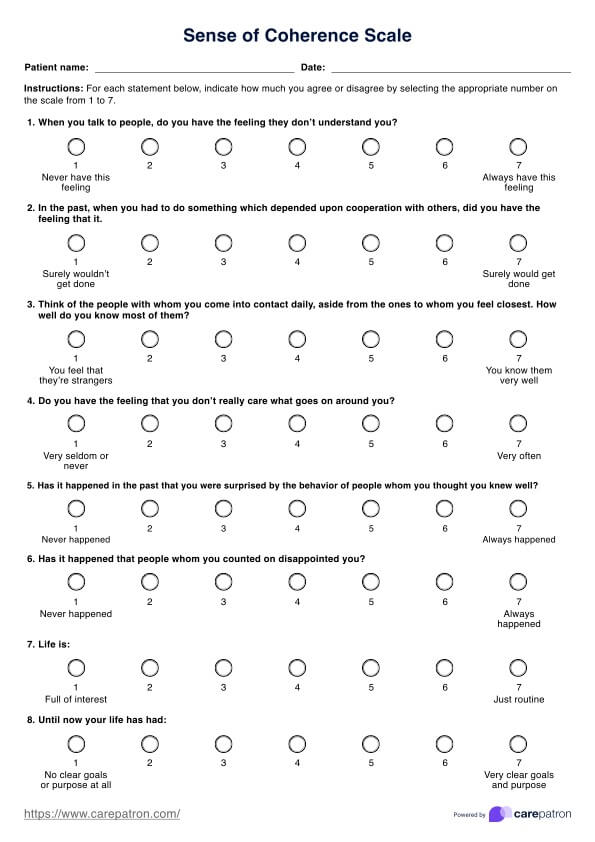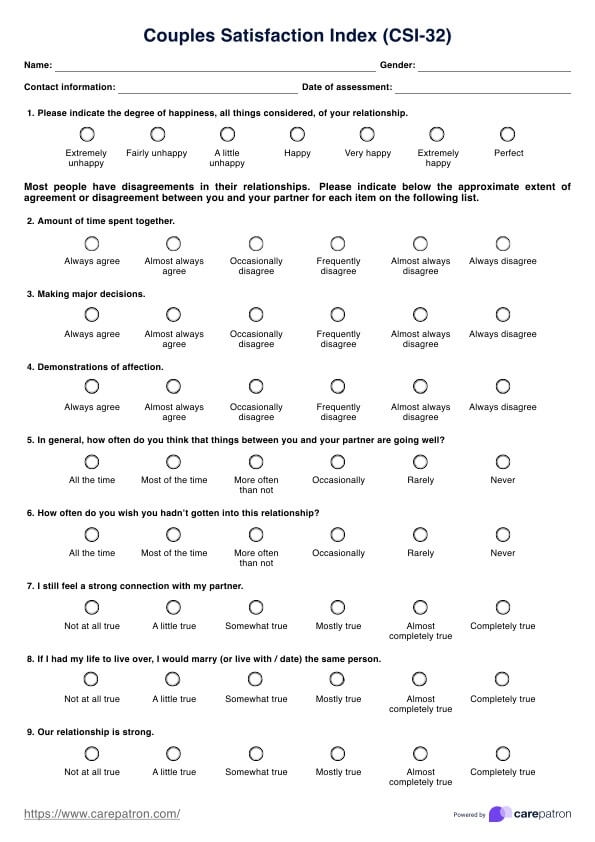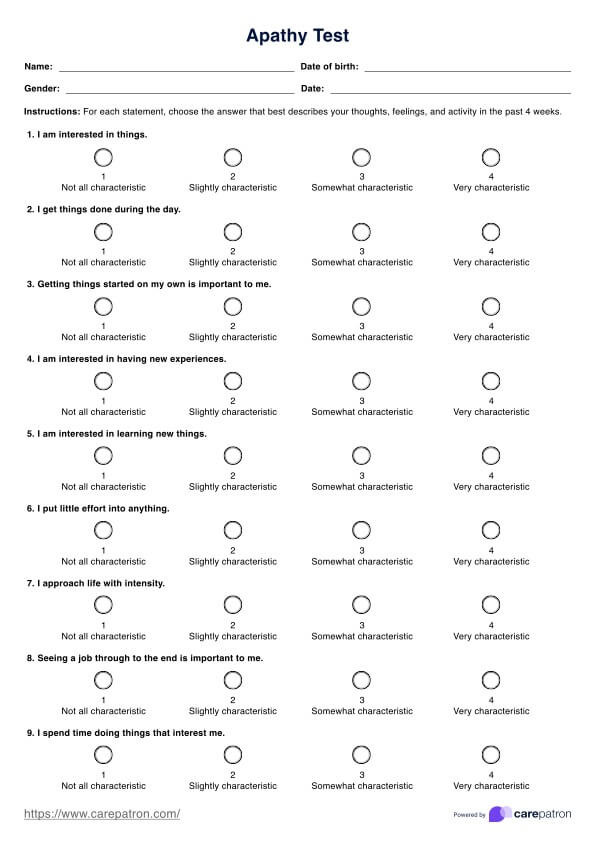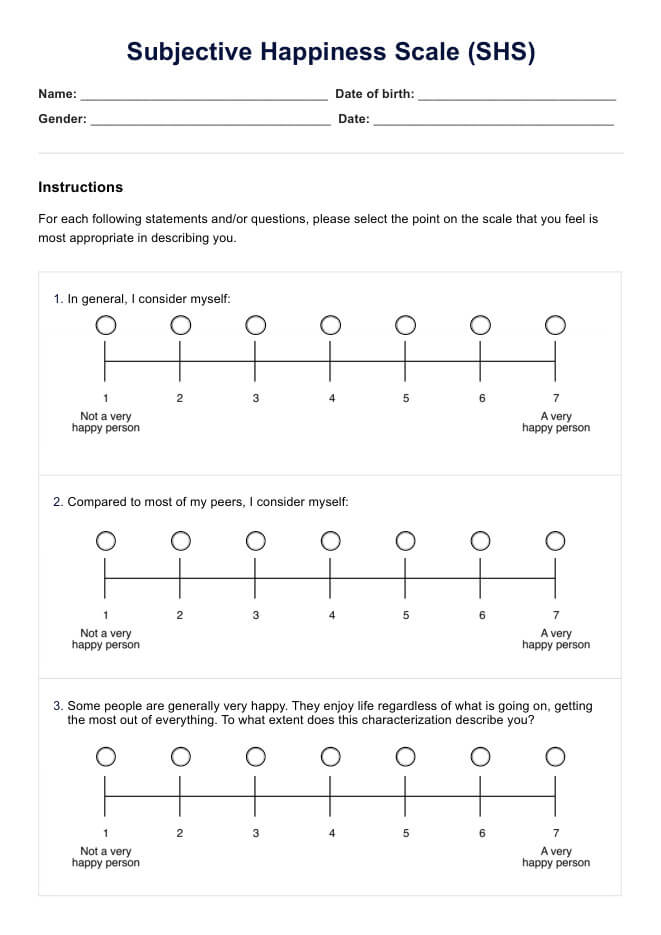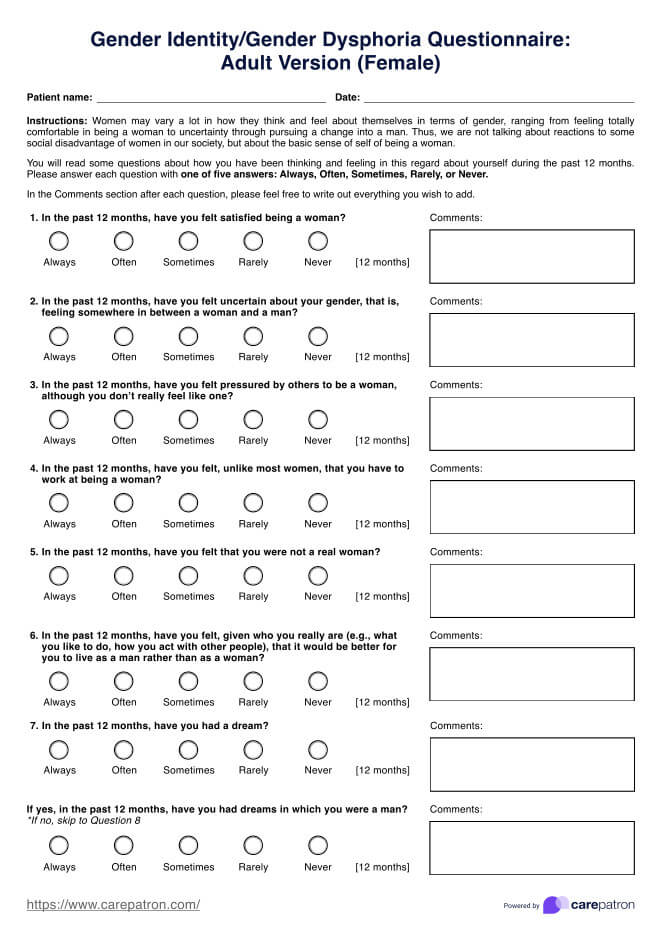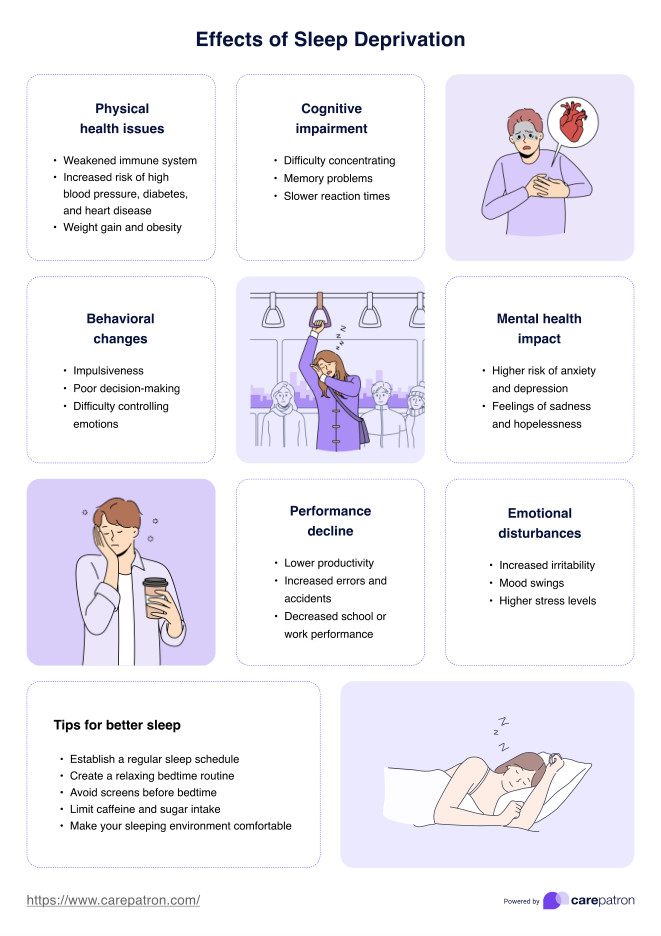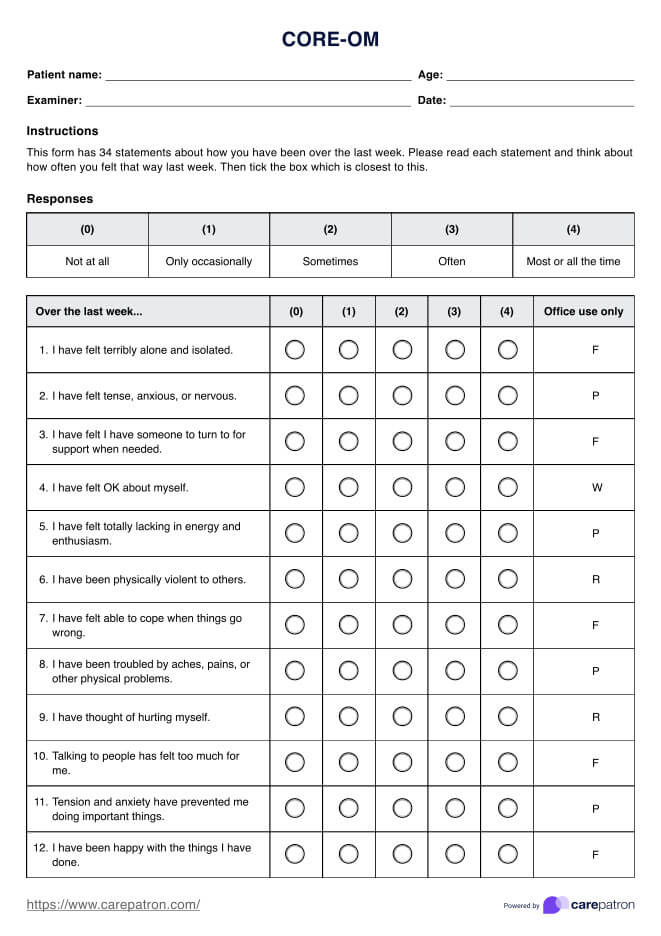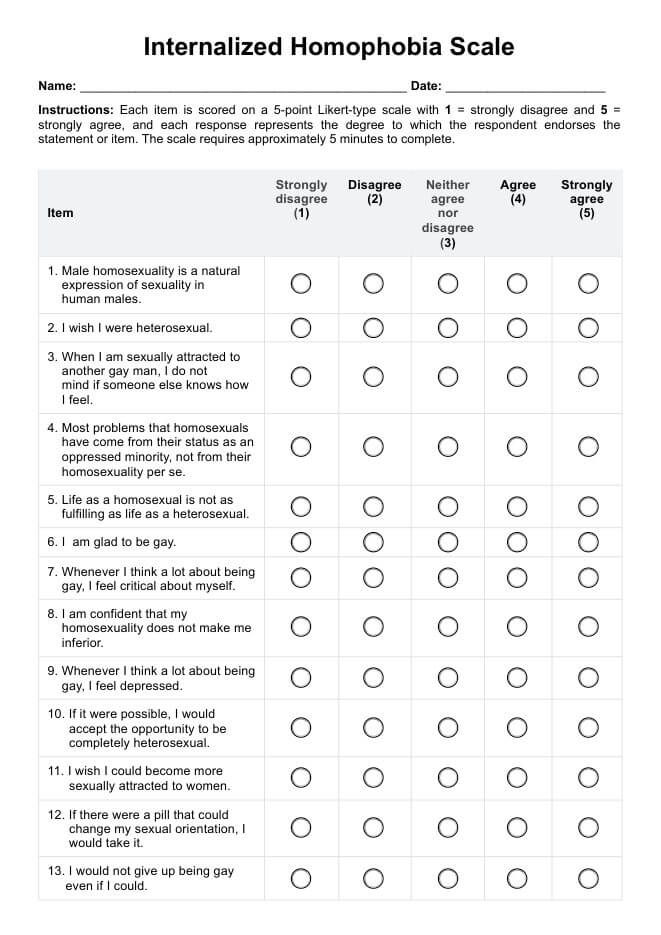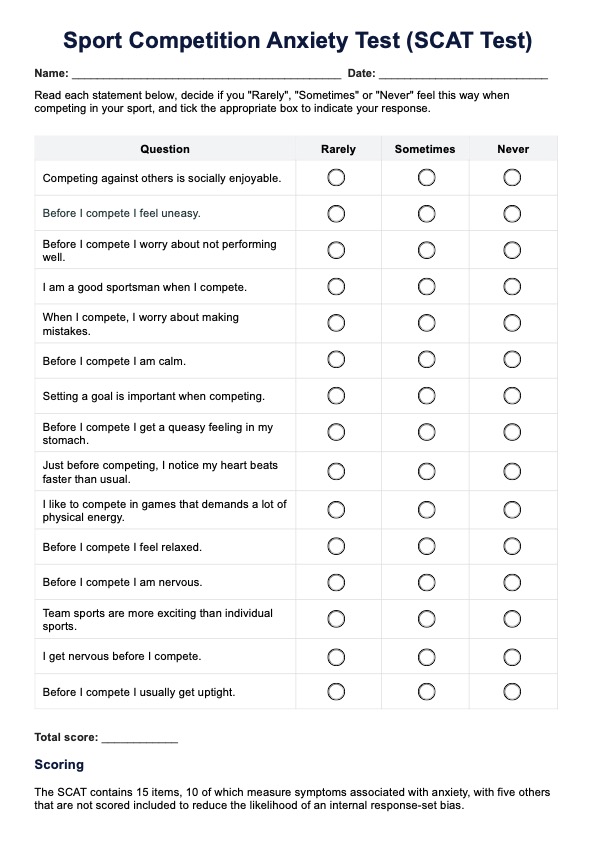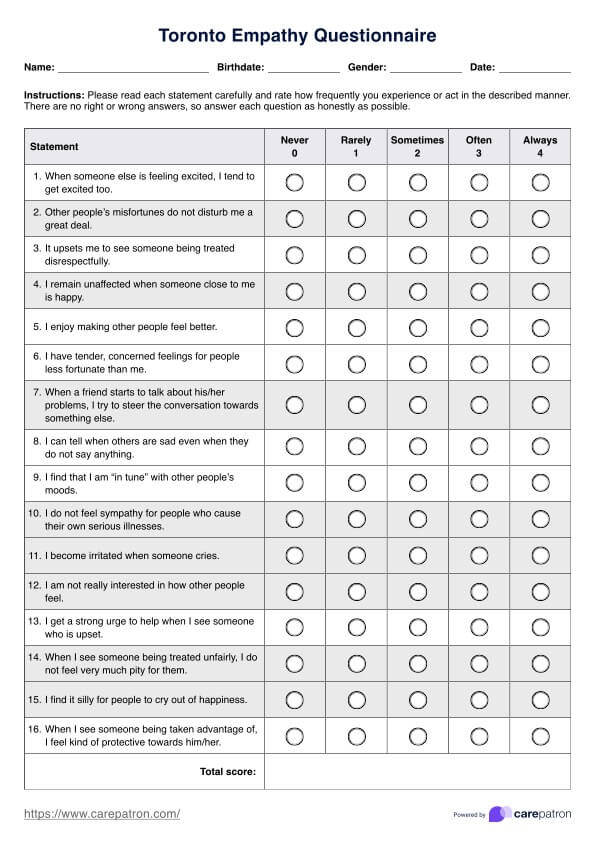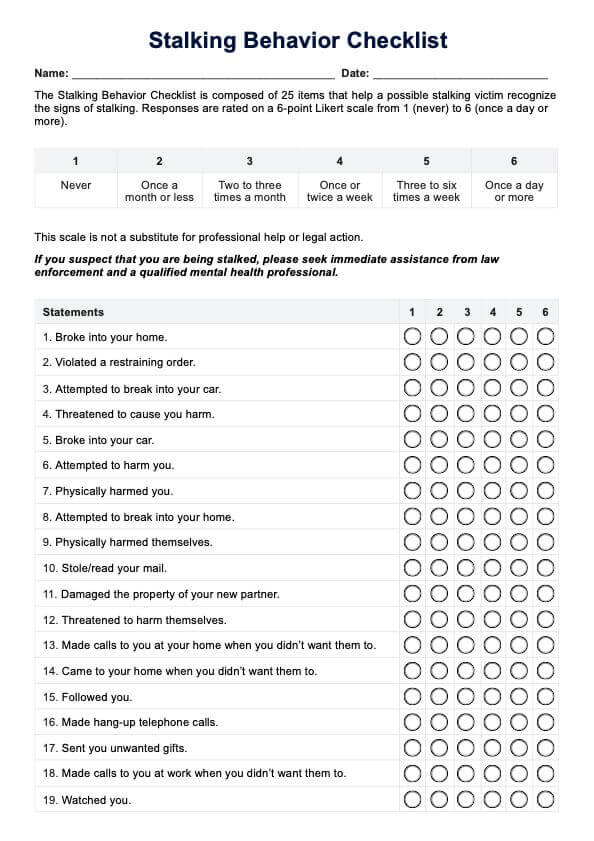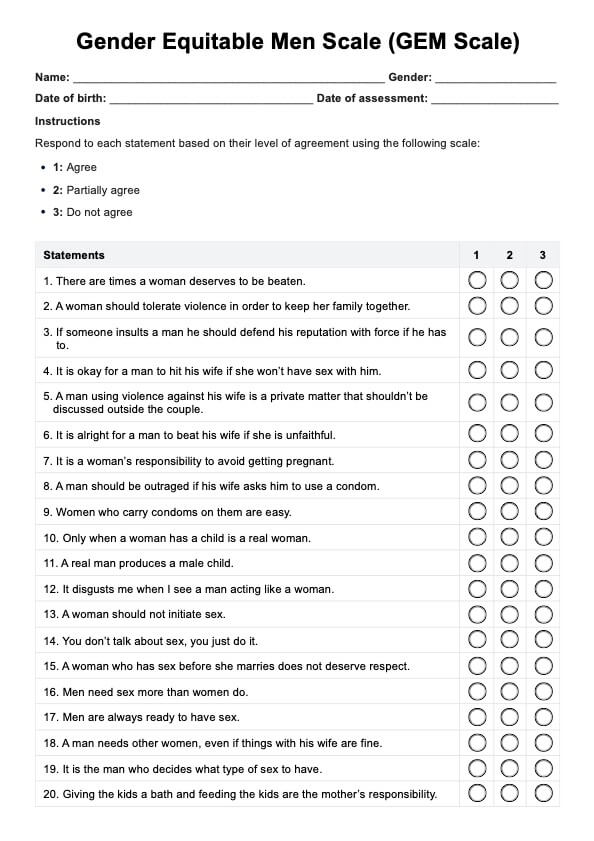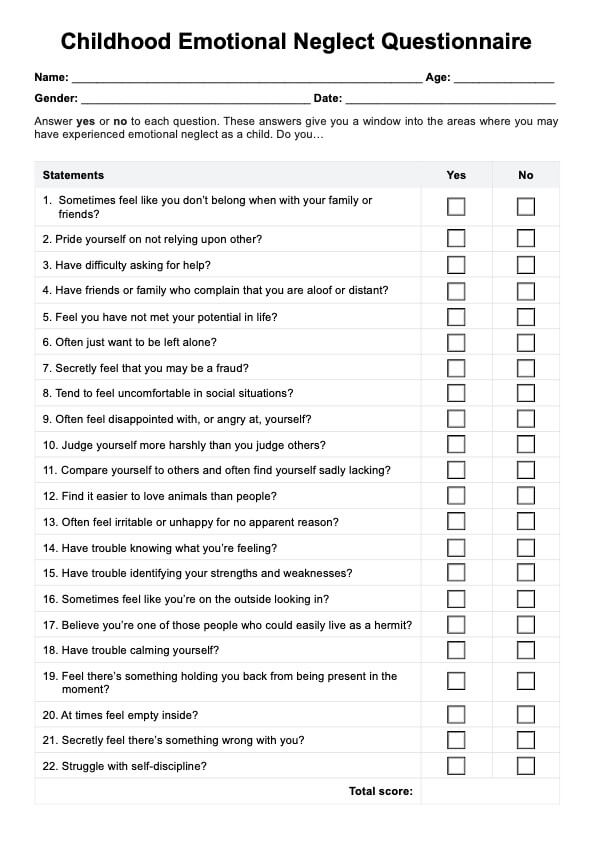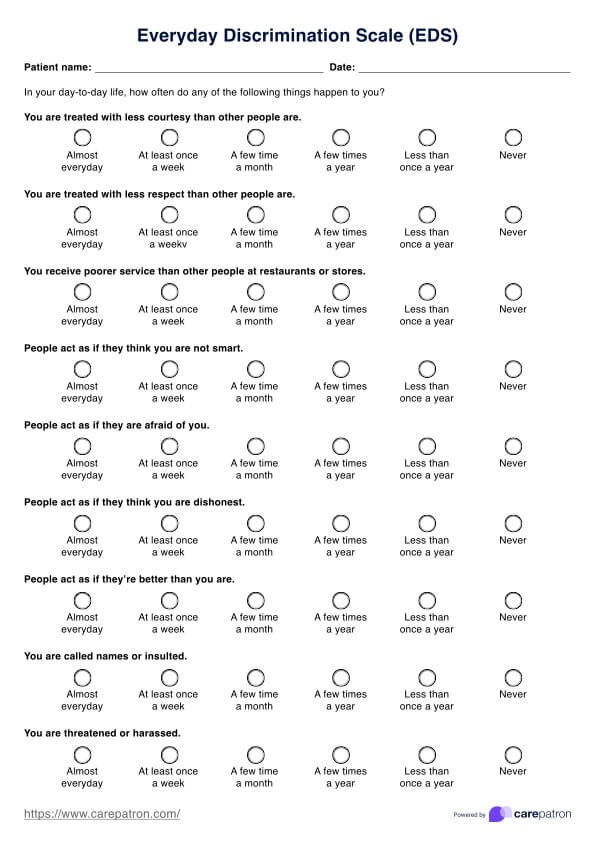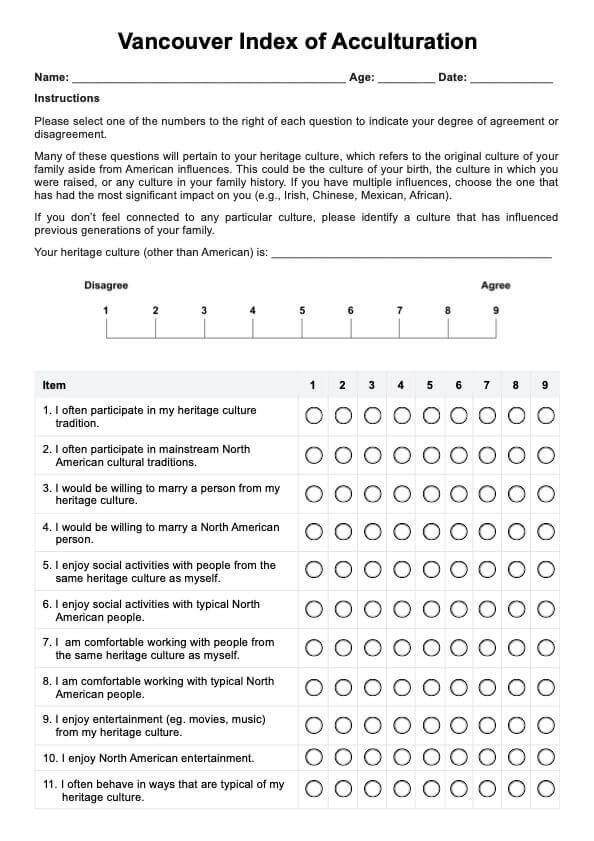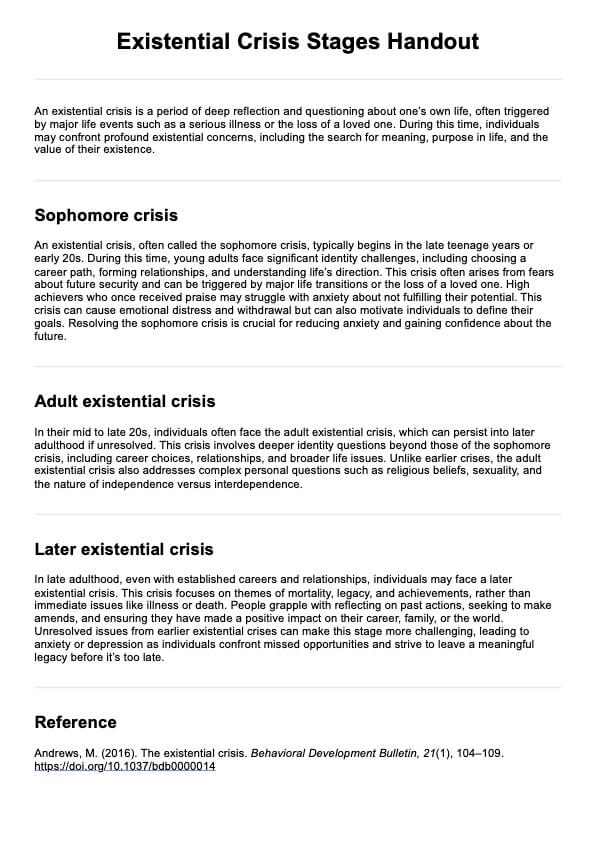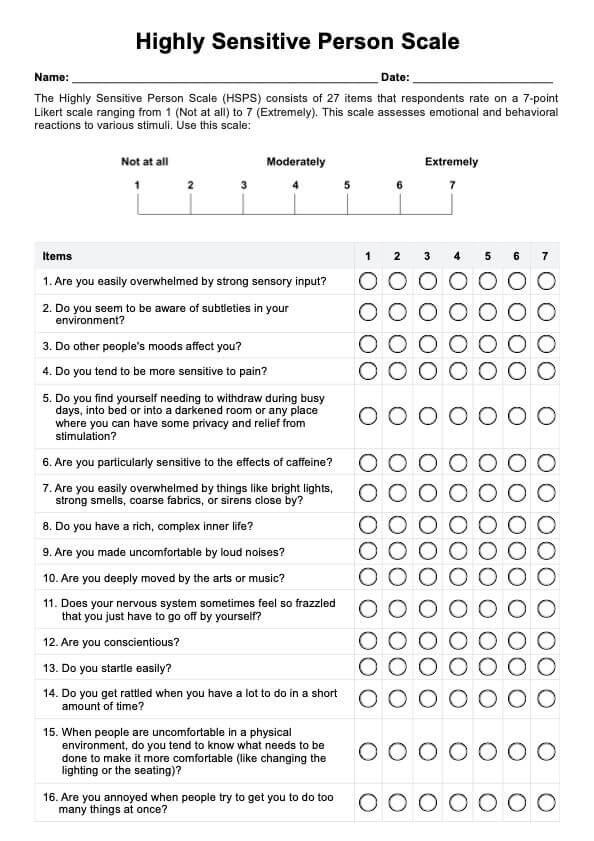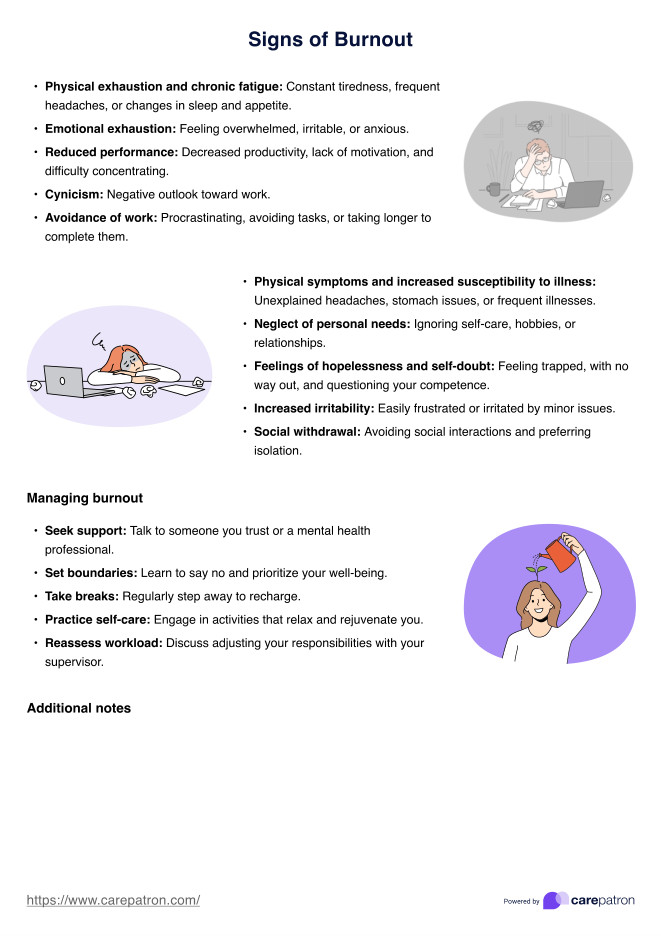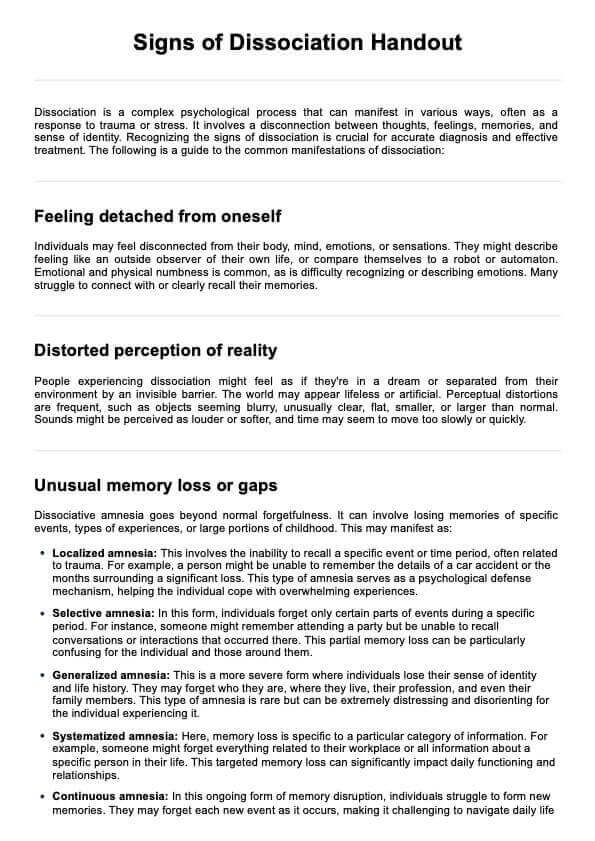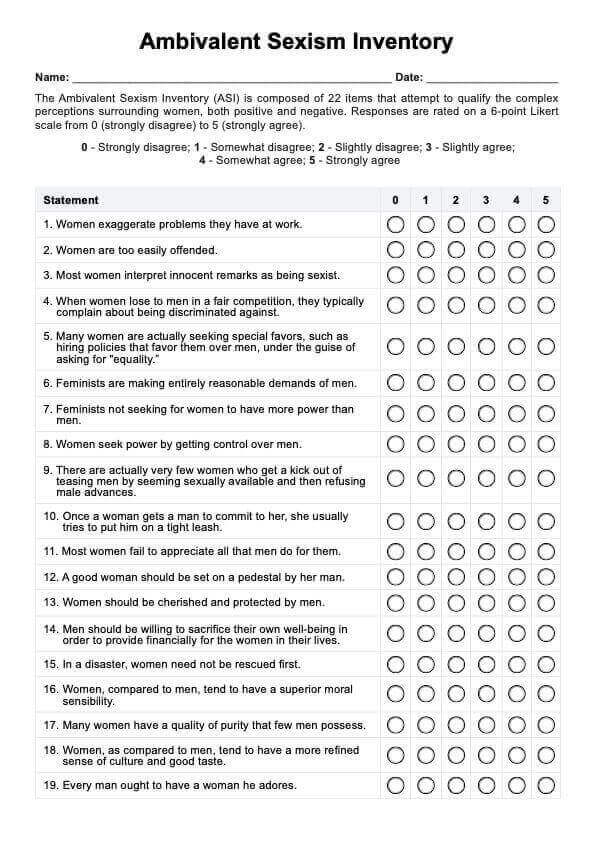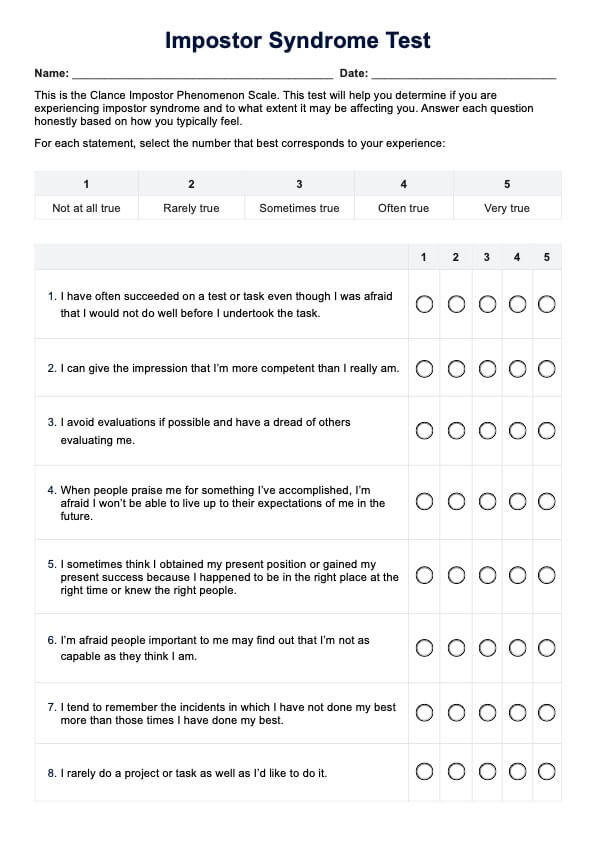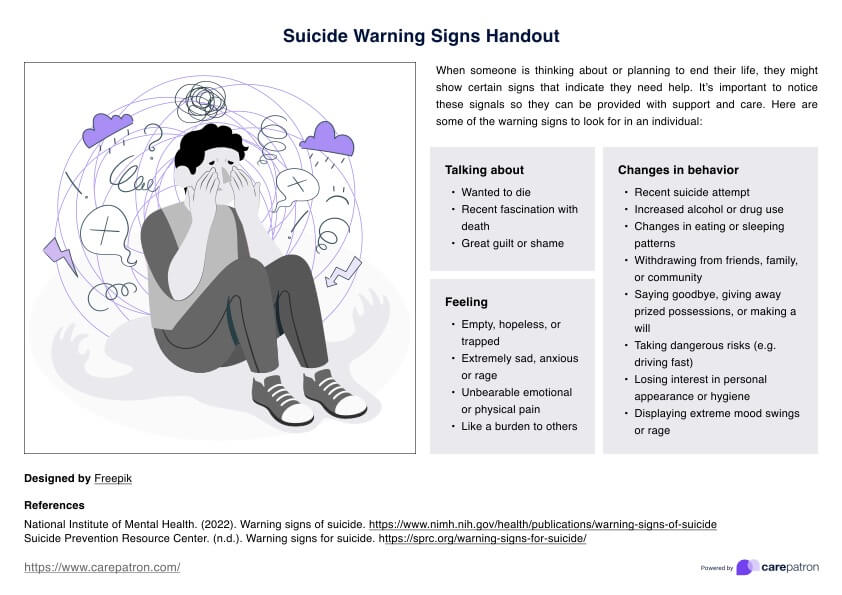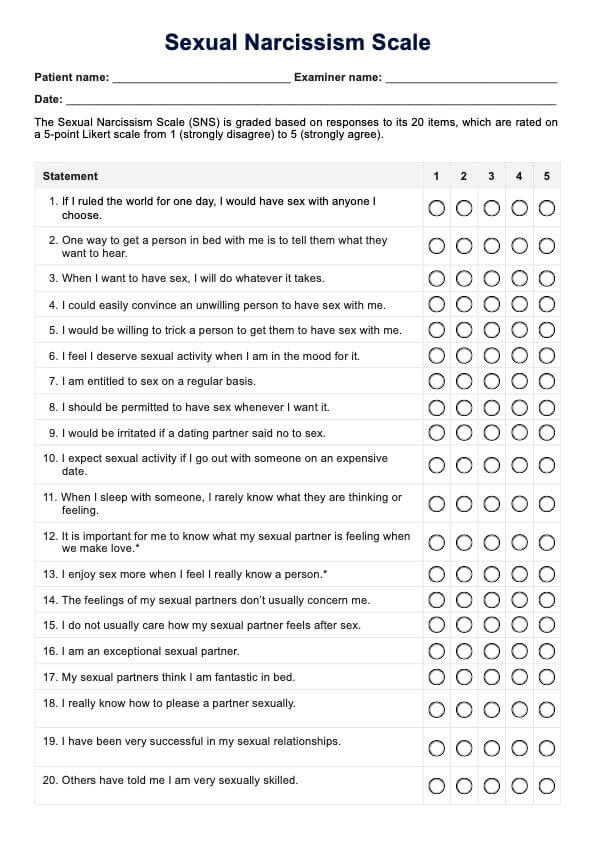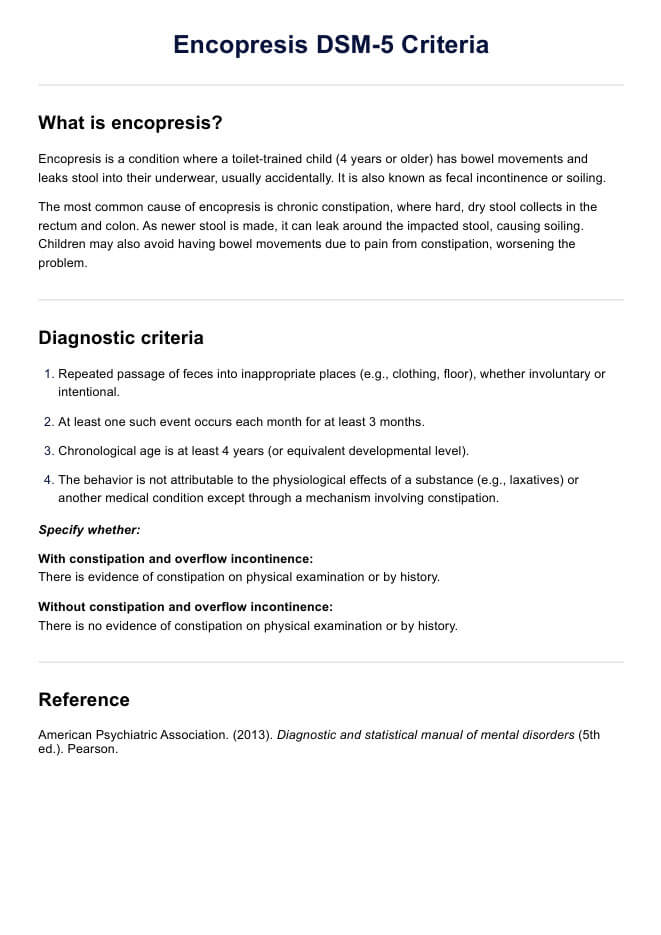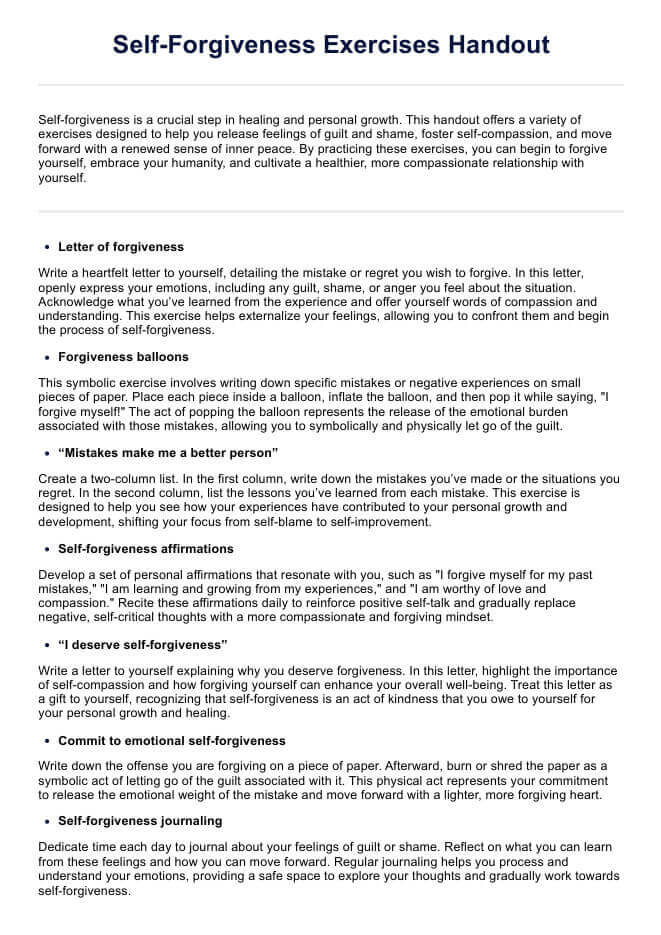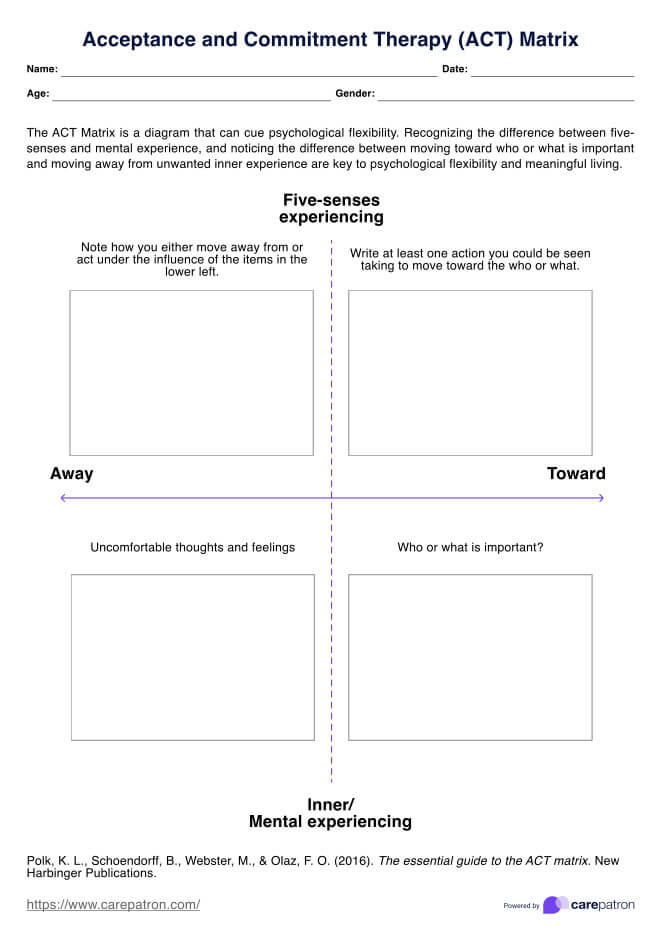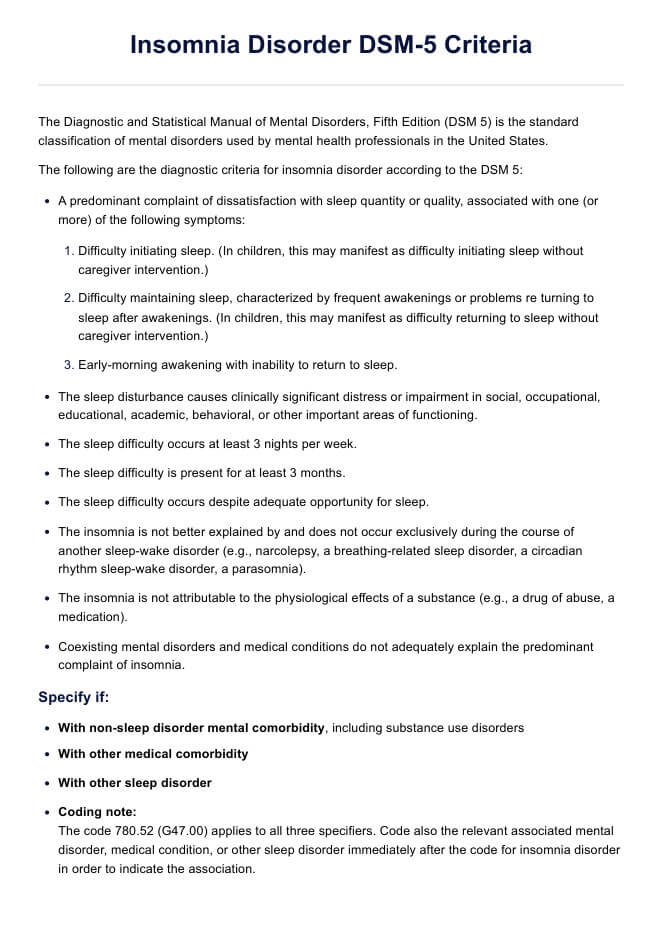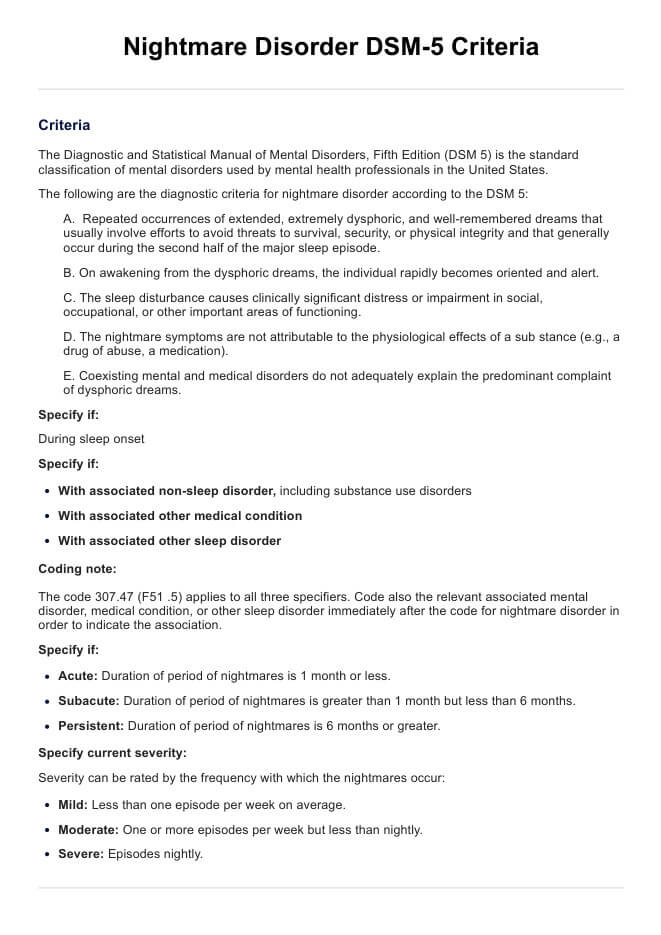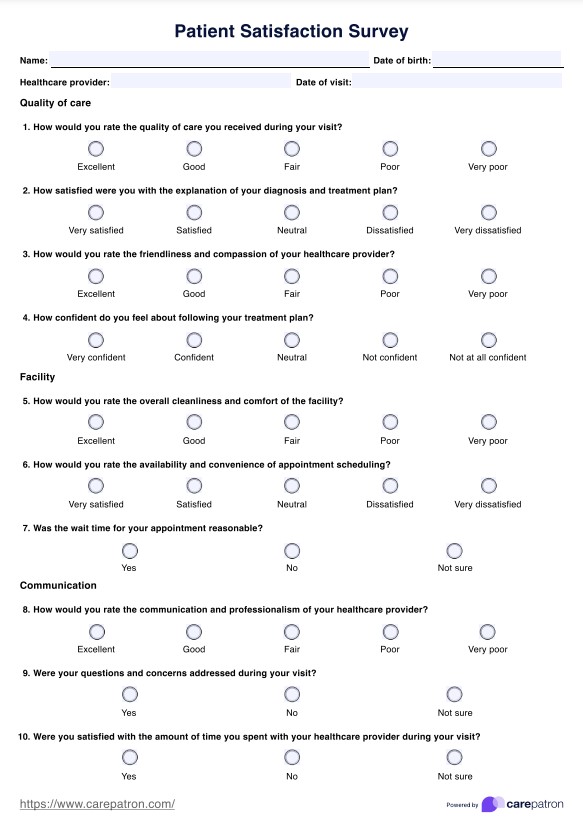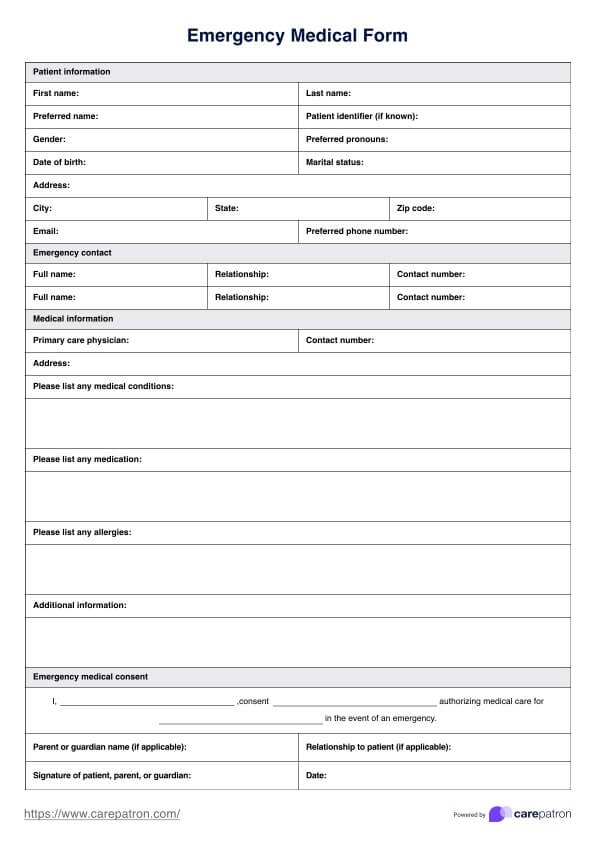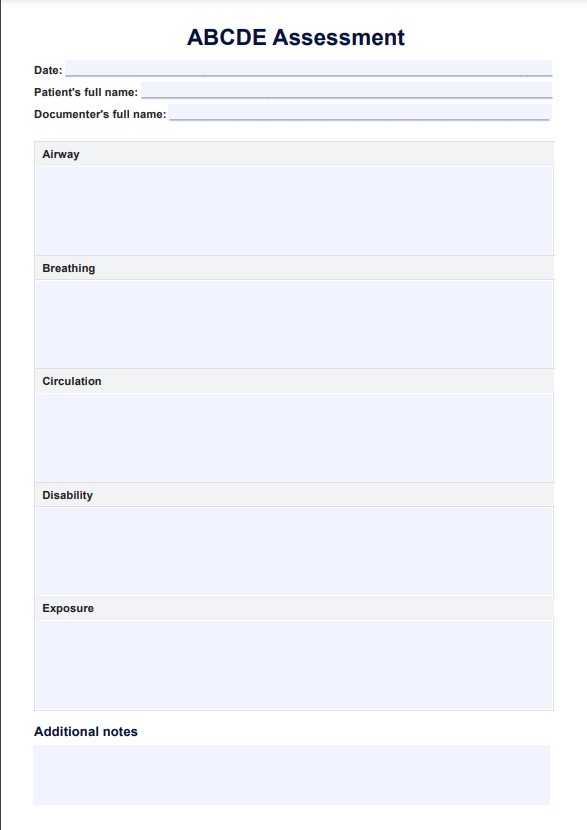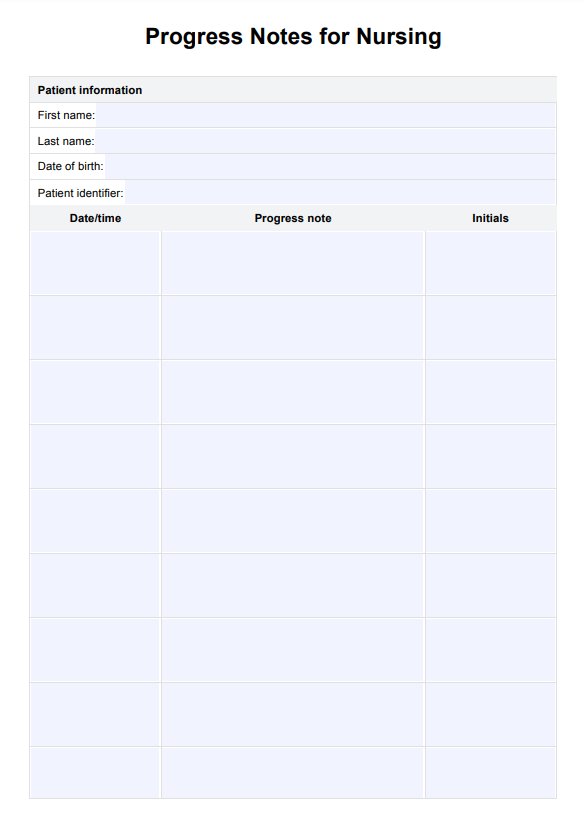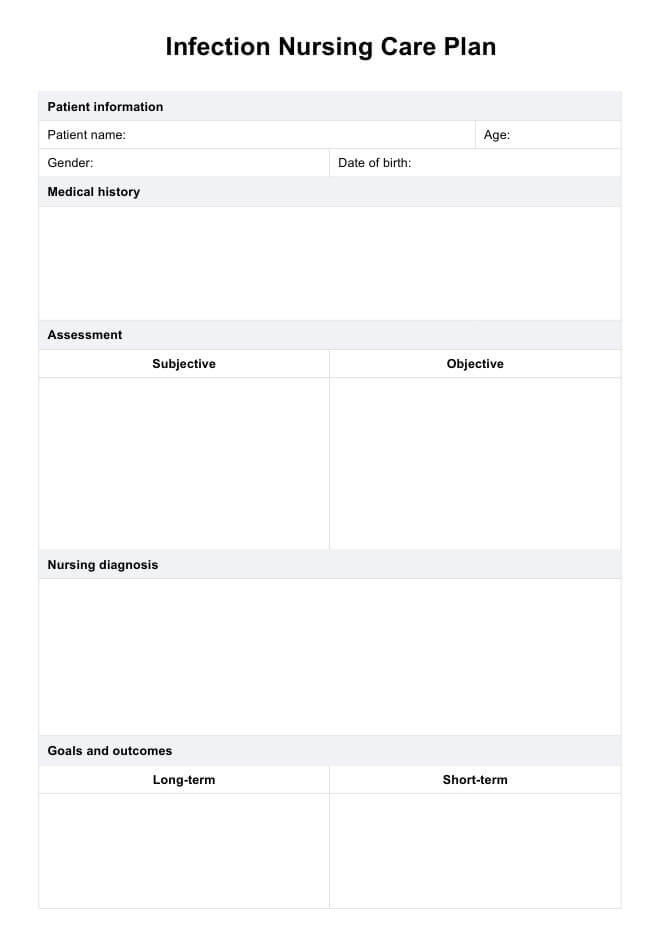Depression Nursing Care Plan
Use our free Depression Nursing Care Plan template to support clinical decision-making and improve patient outcomes.


The importance of nursing depression properly
Properly nursing depression is crucial for improving patient outcomes, ensuring safety, and enhancing the quality of care in healthcare settings. Major depressive disorder (MDD), a prevalent mental health disorder, significantly impacts a patient's ability to function (Bains & Abdijadid, 2023). When untreated, it can lead to self-harm, increased suicide risk, and deteriorating physical health. Healthcare practitioners must recognize depressive symptoms early, including a depressed mood, changes in appetite, sleep disturbances, and loss of interest in activities, to initiate timely interventions (NHS, 2023).
Nursing diagnosis plays a vital role in managing mental disorders like clinical depression and other mood disorders. Accurate diagnosis enables the formulation of individualized care plans that address patients' emotional and physical needs. Without proper assessment, patients with mood disorders may experience worsening symptoms, delayed recovery, and increased hospitalization risks. Nurses must consider factors like the patient’s support system, history of mental illness, and previous suicide risk when developing interventions.
Effective nursing care for mental health conditions requires an integrated approach. This includes identifying depressive symptoms, providing emotional support, educating patients and their families, and promoting adherence to treatment plans. Inadequate care for depression can lead to adverse outcomes such as neglect of self-care, social withdrawal, and persistent depressive states.
Depression Nursing Care Plan Template
Depression Nursing Care Plan Example
What is a Depression Nursing Care Plan?
A Depression Nursing Care Plan is a tool used by healthcare professionals to assess, diagnose, plan, develop interventions, and evaluate care for patients with major depression. This care plan focuses on addressing depression symptoms such as persistent sadness, difficulty concentrating, fatigue, and suicidal thoughts. It helps nurses identify risk factors, develop appropriate interventions, and monitor patient progress.
The plan has various sections, such as patient information and medical history, to understand underlying causes. Subjective findings capture patient-reported feelings, while objective findings focus on observable behaviors. Using assessments like the Beck Depression Inventory and other tools, nurses assess the severity, guiding nursing care plans. Clear nursing diagnoses lead to setting measurable short-term and long-term goals, ensuring individualized care.
Moreover, the plan allows you to outline interventions with rationales, emphasizing strategies to improve mental health and reduce risks. Regular evaluations are also effective reflective tools, promoting recovery and preventing relapse.
How does this nurse care plan for depression work?
A Depression Nursing Care Plan simplifies patient care. Follow these steps to simplify your nursing process:
Step 1: Access the template
Click the “Use template” button to get started. This will immediately direct you to download the Carepatron app, giving you instant access to the Depression Nursing Care Plan. You can also download a PDF version by choosing "Download."
Step 2: Gather patient information and identify nursing diagnoses
To personalize, relevant data on the patient’s personal data and medical or mental health history must be collected. Then, determine key nursing diagnoses based on subjective and objective assessment findings and mental status examination.
Step 3: Outline interventions
Develop nursing interventions based on the goals and diagnosis, including therapeutic communication, psychoeducation, medication adherence support, safety planning, and lifestyle modifications.
Step 4: Evaluate and adjust the care plan
Assess patient response to interventions, monitor mood changes, coping effectiveness, and adherence, and adjust the care plan as needed. Document progress and modifications thoroughly. We've provided a section where you can add notes for other essential details.
Benefits of using this Depression Nursing Care Plan
Creating a solid depression NCP doesn’t have to be complicated. This easy-to-use template helps you stay organized, save time, and provide the best care for patients with a mood disorder like depression. Here are some advantages:
Improves patient outcomes
A care plan ensures that interventions are targeted and effective. Using this template, you can manage symptoms, adjust treatments as needed, and provide consistent support. This leads to better patient engagement, improved coping strategies, and enhanced mental health outcomes.
Saves time
With a ready-to-use framework, you spend less time formatting and more time focusing on patient care. It eliminates guesswork by outlining essential sections, reducing documentation errors and redundancies. This efficiency allows for more meaningful patient interactions and timely interventions.
Available in digital and printable formats
Whether you prefer working on a screen or with a physical copy, this template offers both options. It’s accessible anytime, making it easy to update patient records on both formats. Both formats ensure flexibility in different clinical settings, from hospitals to outpatient care.
References
Bains, N., & Abdijadid, S. (2023, April 10). Major depressive disorder. PubMed; StatPearls Publishing. https://www.ncbi.nlm.nih.gov/books/NBK559078/
NHS. (2023, July 5). Symptoms - depression in adults. https://www.nhs.uk/mental-health/conditions/depression-in-adults/symptoms/
Commonly asked questions
The best treatment for depression must be tailored to the patient's needs. However, it typically includes a combination of prescribed medications, such as antidepressants, and therapy sessions like cognitive-behavioral therapy (CBT). Lifestyle modifications, patient education, and support systems also play crucial roles in managing depressive disorders.
Goals for a patient with depression include improving coping skills, enhancing daily functioning, reducing depressive symptoms, and promoting medication adherence. Long-term objectives focus on preventing relapse and encouraging participation in meaningful activities.
Nursing interventions for depression include promoting a structured routine, monitoring for suicidal behavior, and encouraging participation in therapy sessions. Educating patients on prescribed medications and developing effective coping skills.


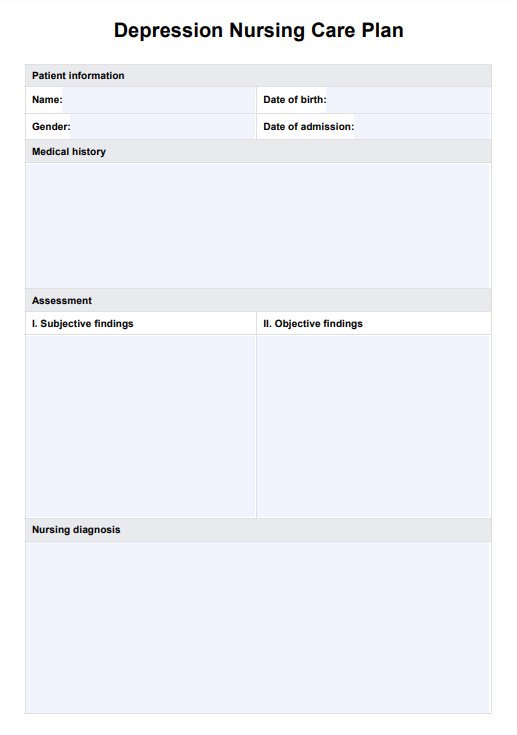
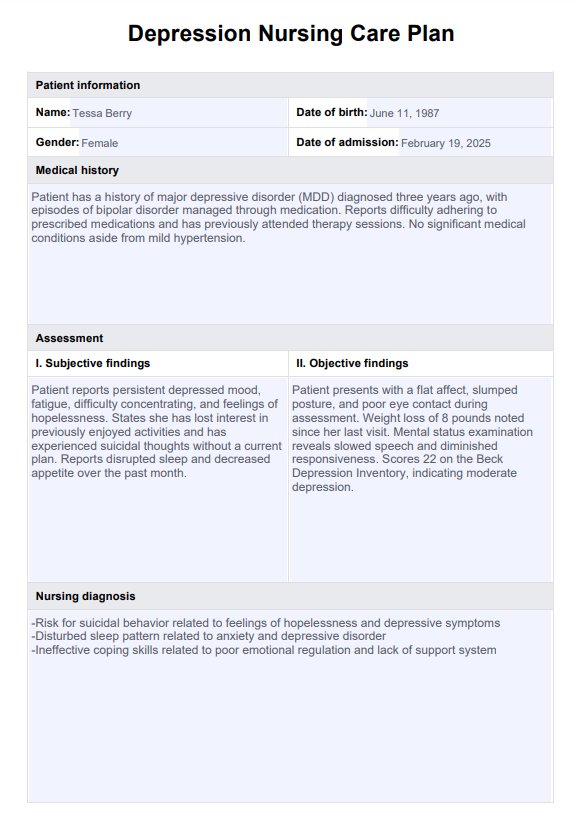

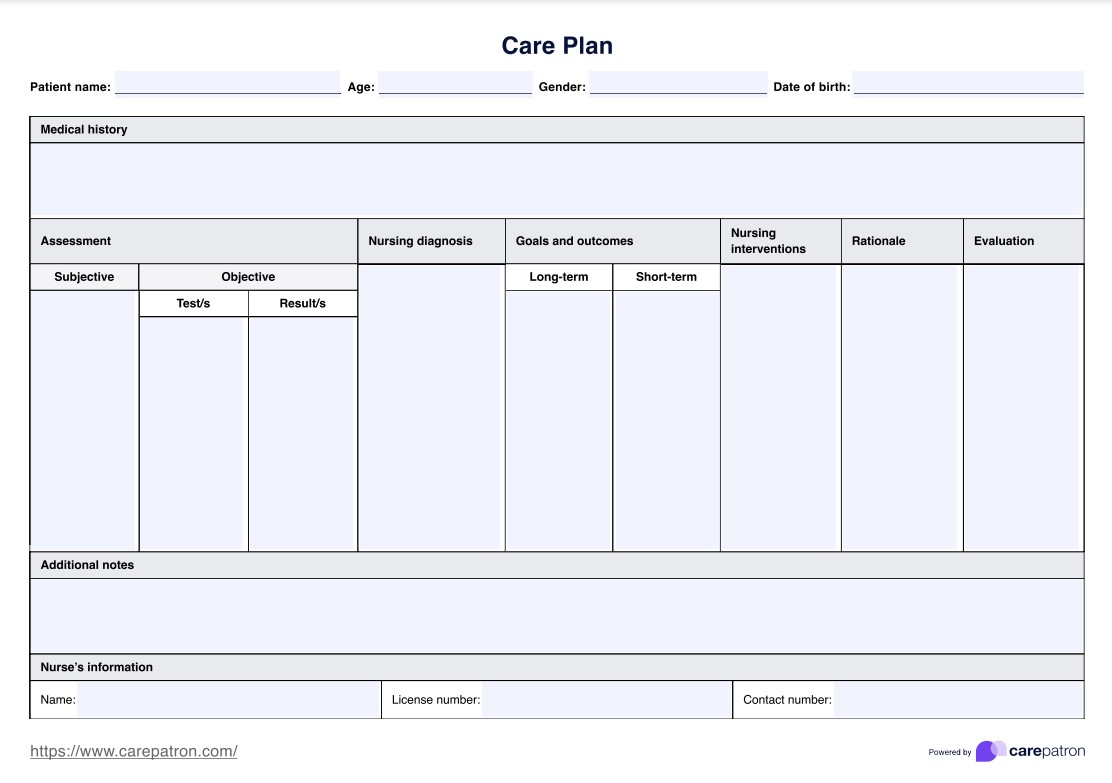
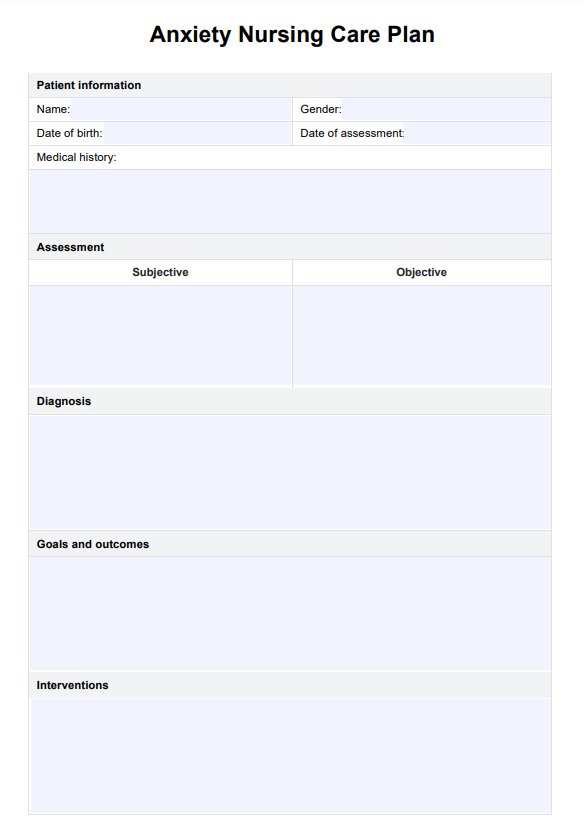
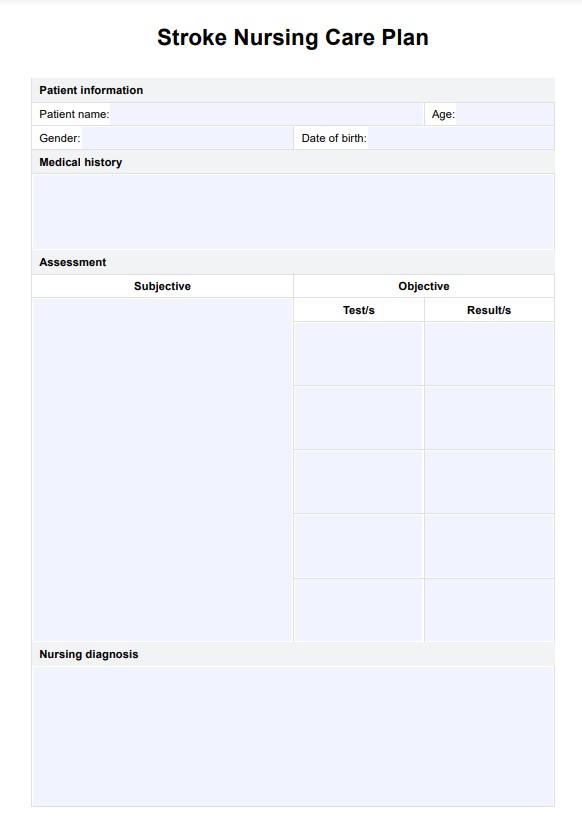
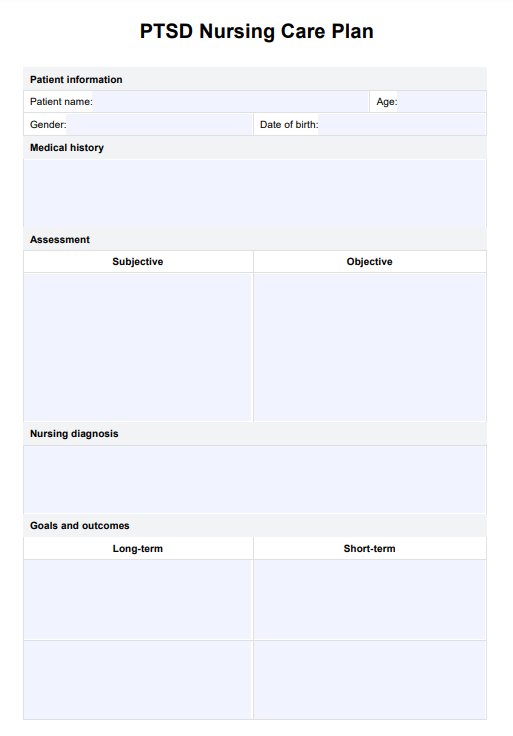









-template.jpg)















































